The National Institute on Drug Abuse describes heroin as a highly addictive opioid drug that is illegal to obtain. When someone uses heroin, the drug typically creates a rush of pleasure, and it usually doesn’t take long for the person to need larger amounts of heroin to experience that same feeling. This can put them at a high risk for developing a heroin addiction, which can negatively affect their health, relationships, and career.
At East Tennessee Behavioral Health, we provide clinically excellent care for adolescents, adults, and senior adults who are struggling with heroin addiction. Our team of compassionate experts strives to help each person find their unique path to recovery.
Signs & Symptoms of Heroin Addiction
The symptoms of heroin addiction can vary from person to person depending on certain factors in their lives. However, recognizing the signs of heroin addiction can help you know when it’s time to reach out for professional help. These are common signs and symptoms of heroin addiction:
- Mouth is frequently dry
- Skin is often itchy
- Struggles with constipation
- Complexion is often flushed
- Often has nausea or vomits
- Thinking is often cloudy or foggy
- Drifts between consciousness and semiconsciousness
- Has overwhelming cravings for heroin
- Can’t stop using heroin even if they want to
- Needs more heroin to experience the desired effect
- Heroin use interferes with daily functioning
- Uses heroin despite adverse life consequences
- Spends majority of time getting and using heroin
- Spends a lot of time recovering from heroin use
Heroin Addiction Statistics
The Substance Abuse and Mental Health Services Administration reported the following statistics on heroin addiction in the United States based on a 2020 survey:
- About 902,000 people age 12 or older used heroin in the past year.
- About 103,000 people age 12 or older used heroin for the first time in the past year, with 90% of people trying heroin for the first time after the age of 25.
- An estimated 691,000 people age 12 or older met the criteria for heroin addiction in the past year.
Effects of Heroin Addiction
Each person who is struggling with a heroin addiction has a different background, so the effects of heroin addiction may differ from person to person. But without professional support, their risk for suffering from various adverse effects of using heroin remains high. Common effects of heroin addiction include:
- Abscesses or collapsed veins
- HIV, hepatitis, and other infectious diseases
- Heart problems, liver disease, and kidney disease
- Pneumonia, tuberculosis, and other lung problems
- Unwanted pregnancy or miscarriage
- Chronic work absences or decreased work performance
- Financial strain, bankruptcy, or homelessness
- Isolation from closest friends and family members
- Frequent arrest or time spent in jail
- Suicidal ideation or attempted suicide
The Benefits of Heroin Addiction Treatment
The effects of heroin addiction can put you in a truly dark place, and you may feel like there’s no hope in sight. But the truth is that there is hope, and accepting that you need treatment for a heroin addiction is the first step toward a better life.
By getting heroin addiction treatment, you can detox from heroin with the support of professionals who can minimize the discomfort of the withdrawal process. You can also make crucial changes to your behaviors and lifestyle that can lead to lasting sobriety.
Throughout your time at a heroin addiction treatment center, you will also likely develop healthier ways to cope with stress and intense emotions. These skills can help you resist relapse after you complete heroin addiction treatment.
Therapies Used to Treat Heroin Addiction
At East Tennessee Behavioral Health, we provide comprehensive, personalized heroin addiction treatment for everyone who turns to us in their time of need. To accomplish this, we carefully assess each person’s needs before creating their heroin addiction treatment plan, which we custom-build to address their unique treatment goals.
Depending on your specific situation, your heroin addiction treatment plan might include:
- On-site, nonmedical detoxification services
- Individual, group, and family therapies
- Medication management services
- Basic medical care
Throughout your time at our heroin addiction treatment center, you may also engage in modalities like dialectical behavior therapy (DBT), cognitive behavioral therapy (CBT), and motivational enhancement therapy (MET).
Steps to Enter Our Heroin Addiction Treatment Center
If you’re looking for a place to get heroin addiction treatment, you won’t want your treatment to be delayed by a lengthy admissions process. At East Tennessee Behavioral Health, we designed our admissions process to be as simple and efficient as possible.
Our admissions team is available anytime, day or night, so you can contact us at your convenience. Our admissions process begins with an initial assessment to determine whether the heroin addiction treatment we offer is the best fit for your needs. During this time, we’ll also gather some preliminary information from you, such as your clinical history, demographic information, and payment and insurance information.
Our goal is to find the best place for you to get heroin addiction treatment. If we believe that that is our treatment center, we’ll set an admission date and guide you through the rest of the admissions process. Otherwise, we’ll refer you to another facility that we believe better fits your needs.
You don’t have to battle a heroin addiction alone. By working with the professionals at East Tennessee Behavioral Health, you can get on the path to a better, brighter future.
This content was written on behalf of and reviewed by the clinical staff at East Tennessee Behavioral Health.















